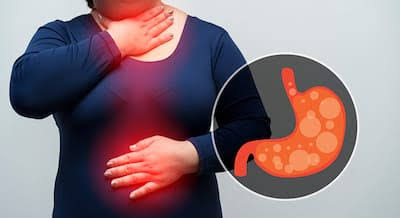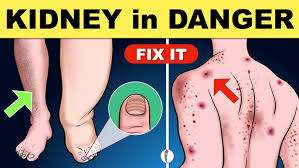Menopause is a natural biological process marking the end of a woman’s reproductive years, typically around age 51. However, some women experience menopause much earlier, in their 30s or even 20s—a condition known as early or premature menopause.
Early menopause is defined as the onset of menopause before age 40, while perimenopause—the transitional phase leading up to menopause—can start in the early 40s. Though relatively rare, early menopause affects approximately one per cent of women under 40 and five per cent of women under 45, according to the Mayo Clinic, an online health repository.
The causes of early menopause are varied, ranging from genetics and lifestyle factors to autoimmune diseases and medical treatments such as chemotherapy. Understanding the warning signs of early menopause is essential for women’s health, as early menopause can carry unique risks, such as increased susceptibility to osteoporosis, cardiovascular disease, and mental health issues like depression.
This article delves into five warning signs of early menopause, helping women recognise the symptoms and seek medical guidance promptly:
Irregular, missed periods
The first and most noticeable sign of early menopause is an irregular menstrual cycle.
For women approaching natural menopause, periods often become unpredictable as the ovaries gradually decrease hormone production. This pattern, however, may start much earlier in women experiencing early menopause.
According to a senior gynaecologist, Dr Amanda Kolawole, irregular or missed periods are often the first sign of a hormonal imbalance. She notes that if a woman under 40 starts experiencing irregular cycles for three months or more, she should consult a gynaecologist.
“Typically, a menstrual cycle lasts between 21 and 35 days, with bleeding lasting between two and seven days. Women experiencing early menopause might skip several cycles, notice heavier or lighter bleeding, or experience more prolonged periods. While occasional irregularity is normal, persistently irregular cycles in women under 40 should not be ignored, as they could signal the onset of early menopause,” Kolawole noted.
Scientific Insight: A study published in The Journal of Clinical Endocrinology & Metabolism indicates that hormonal fluctuations in oestrogen and progesterone contribute to these menstrual irregularities.
A significant drop in these hormone levels affects the regularity and consistency of periods, which can be an early warning of ovarian decline.
Hot flashes, night sweats
Medical experts note that hot flashes are a common symptom of menopause, but experiencing them before age 40 could indicate early menopause. Hot flashes involve sudden feelings of intense heat, usually in the upper body, which can last from a few seconds to several minutes. Night sweats are similar episodes occurring during sleep, often leading to discomfort and disrupted rest.
A Europe-based Nigerian endocrinologist, who specialises in women’s hormonal health, Dr Tim Banes-Wale, explains that hot flashes and night sweats occur because oestrogen plays a crucial role in regulating body temperature....Read Full Article [Click Here>]
He added, “A sudden drop in oestrogen levels affects the brain’s hypothalamus, the region that controls body temperature, causing sensations of extreme heat.”
Banes-Wale also noted that hot flashes can significantly impact a woman’s quality of life, particularly when they occur frequently or disrupt sleep.
Mood swings, emotional changes
Hormones such as oestrogen and progesterone don’t just regulate the menstrual cycle; they also influence mood, cognitive function, and mental health.
Women going through early menopause often report feeling more anxious, irritable, or depressed, says women’s health researcher and psychologist Tanko Sule.
Sule said that oestrogen, in particular, affects the production of serotonin, a neurotransmitter associated with mood regulation.
“Women who experience early menopause often feel emotional distress, not only due to hormonal fluctuations but also because of the unexpected changes in their life trajectory,” he said.
“Many women feel a sense of loss, especially if they were planning to have children, which can exacerbate feelings of anxiety and depression.”
Anxiety, irritability, and mood swings are common during perimenopause, but these symptoms may be more intense or prolonged in cases of early menopause. Studies in Psychosomatic Medicine journal indicate that women experiencing early menopause have a higher risk of depression than those undergoing natural menopause. Recognising and addressing these emotional changes is crucial, as mental health support can play a key role in managing the transition.
Vaginal dryness, discomfort
One lesser-discussed but equally important symptom of early menopause is vaginal dryness, which can lead to discomfort, pain during intercourse, and even recurrent urinary tract infections.
Vaginal tissues are highly sensitive to oestrogen, which helps maintain lubrication and elasticity. When oestrogen levels decline, the vaginal lining becomes thinner, drier, and more susceptible to irritation.
According to a gynaecologist based in Boston, U.S., Dr Amanda Langton, “Women in early menopause may notice increased vaginal dryness or experience pain during sex, which is directly linked to the reduced oestrogen levels. It’s a common but under-reported symptom, as many women feel embarrassed to discuss it.”





